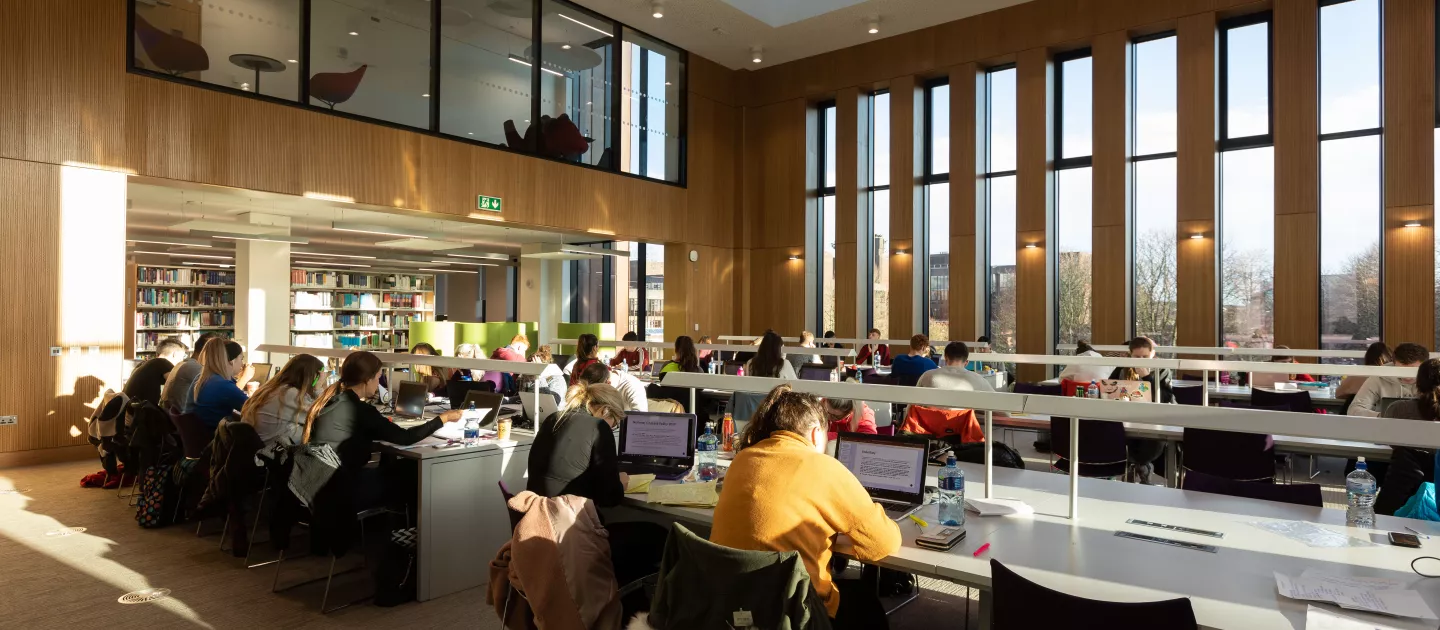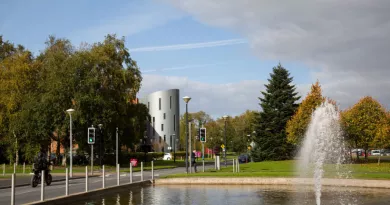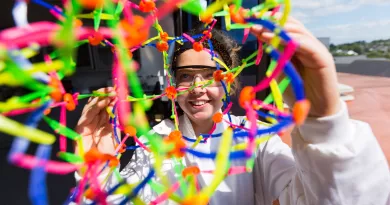Since its foundation, University of Limerick has upheld the principles of free enquiry and expression. Its mission is to build on the expertise of its scholars in creating, harnessing and imparting knowledge for the benefit of its students and the enrichment of its community.
University of Limerick welcomed more than 18,200 students in September 2024 and takes great pride in the diversity of its student population. Students come from the United States, Canada, Latin America, Europe, Asia and Africa. While the majority are full-time students, we have a growing number of part-time learners who combine study with work or other commitments.
From the outset, UL has looked to the dynamically changing world beyond the campus to inform its future direction. Our Cooperative Education programme – one of the largest of its kind in the EU – is one example of how we prepare our students for life and work after university. Annually, the programme places over 2,000 students in work experience in industry, business and the professions across the globe.
UL participates actively in the Erasmus+ programme, which facilitates student and staff mobility to other institutions in the EU as well as work placements. Currently, UL has the largest Erasmus+ programme in Ireland. Our commitment to international mobility is further reflected in degree courses that offer an integrated semester at a partner university.
With almost 1,900 academic and professional support staff, UL comprises four faculties: Arts, Humanities and Social Sciences; Kemmy Business School; Education and Health Sciences; and Science and Engineering. In addition to its extensive suite of undergraduate programmes, UL offers taught postgraduate programmes, research postgraduate opportunities and professional and flexible learning. Our student-centred academic programmes foster problem-based and experiential learning. They nurture critical thinking, stimulate inquisitiveness and the imagination, and motivate lifelong learning.
The academic affairs of UL are controlled by Academic Council, whose membership includes academic staff, senior officers and student representatives. UL accredits programmes delivered in Mary Immaculate College, Limerick and the Garda College, Templemore.
As a research-intensive institution, UL has a proud record of innovation and excellence in research, education and scholarship and is committed to social good. We value creativity and curiosity, and our academic community engages in fundamental research that pushes the boundaries of the knowledge base. We have seen new research areas emerge within and across disciplines such as psychology, energy, data science and advanced materials. UL research is addressing global challenges in areas such as clean energy, sustainable cities and communities, education, and public health. By working together across disciplines, our community is achieving fundamental breakthroughs while ensuring research is rapidly translated into economic and social impacts for Ireland and beyond. In addition, our researchers are having an impact on EU and national policy in areas including equality, diversity and social inclusion; justice; education; health; homelessness; and employment law.
Research at UL is reinforced by the ongoing development of our interdisciplinary research institutes and centres and through collaboration with international academic and industrial partners. UL has two research institutes – the Bernal Institute and the Health Research Institute – and hosts a network of national research centres, including SSPC Research Ireland Centre for Pharmaceuticals, Lero Research Ireland Centre for Software, Centre for Research Training in the Foundations of Data Science, Pharmaceutical Manufacturing Technology Centre, Dairy Processing Technology Centre, and EPI•STEM – National Centre for STEM Education.
With its fine parklands gently embracing both banks of the River Shannon, the natural beauty of UL’s Plassey campus has helped to generate an inspiring and generous context for our educational enterprise. Through this rich physical, intellectual and creative environment and state-of-the-art facilities, such as the Glucksman Library, the University continues to attract an international team of talented teachers and researchers.
The flourishing of UL as an educational institution of true excellence and well-proven relevance has led to its recognition as a centre of significant development in the region and beyond. The growth of the University is underpinned by vibrant partnerships with industry and business, local and regional government, NGOs and communities.
The UL campus incorporates the most modern recreational, sporting and coaching facilities, including the University Arena, which includes a 50-metre pool, the tallest climbing wall in Ireland and the Munster Rugby High Performance Centre. The North campus hosts the Sports Pavilion, all-weather sports pitches, Thomond and Cappavilla student villages and the Quigley student residences. It features iconic buildings for Health Sciences, the Irish World Academy of Music and Dance and the School of Medicine. Linking the North and South campuses, the unique Living Bridge has become a principal attraction for visitors from near and far.
The arts are a central point of reference for UL. Major art and sculpture collections throughout the campus enliven the working environment and foster contemplation and appreciation. Situated in the Foundation Building, the Bourn Vincent Gallery is dedicated to contemporary exhibitions. The University Concert Hall, where conferring ceremonies take place, hosts an array of events all year round. In addition, UL is home to Irish Chamber Orchestra and Sing Ireland. Regular performances by these groups and their guests are a defining feature of campus life.
Above all else, it is the quality of our graduates and of the education we provide that remains our central concern. UL graduates are the University’s true ambassadors, and their endeavours beyond the campus will be the most enduring testimony to our achievements.



